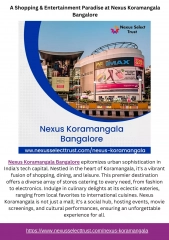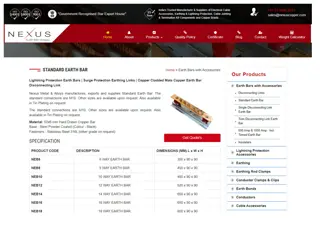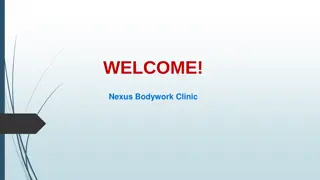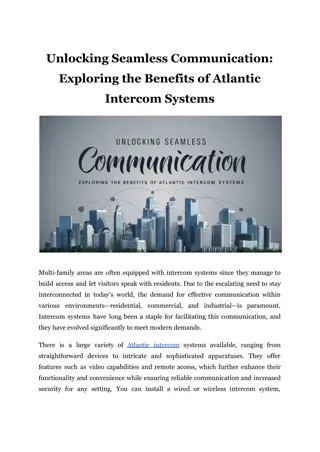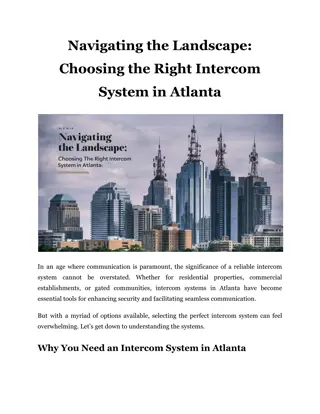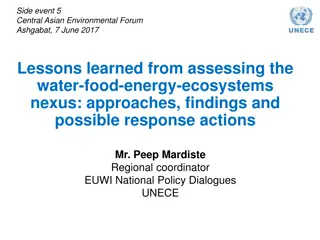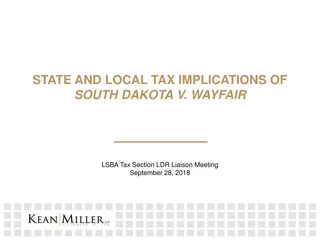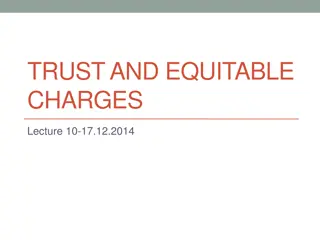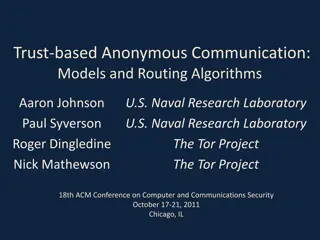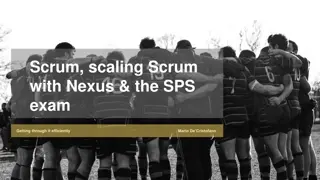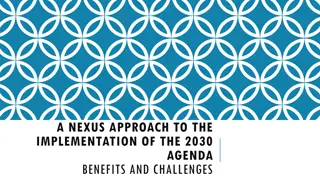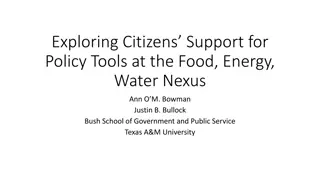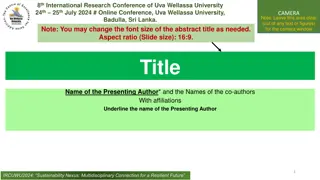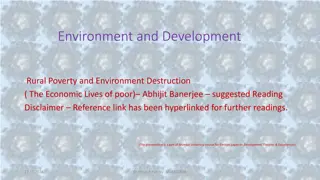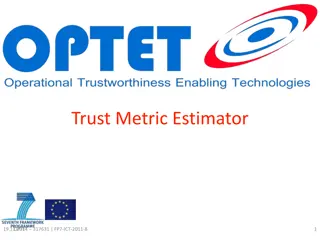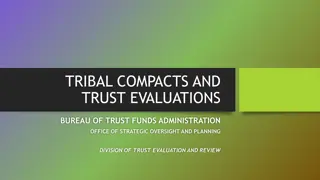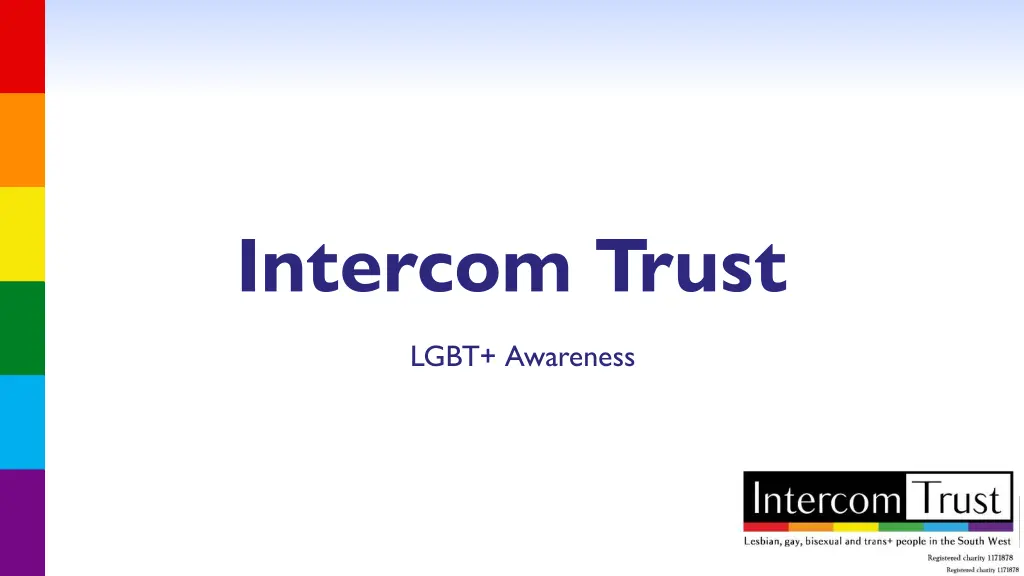
Intercom Trust: Supporting LGBT+ Awareness and Inclusivity in Southwest UK
Providing a safe and educational environment, Intercom Trust in Devon and Cornwall offers support and advocacy for LGBT+ individuals. They focus on gender terminology, health disparities, and community empowerment, aiming to create a welcoming space for all. Explore their services, training, and resources to enhance understanding and promote inclusivity.
Download Presentation

Please find below an Image/Link to download the presentation.
The content on the website is provided AS IS for your information and personal use only. It may not be sold, licensed, or shared on other websites without obtaining consent from the author. If you encounter any issues during the download, it is possible that the publisher has removed the file from their server.
You are allowed to download the files provided on this website for personal or commercial use, subject to the condition that they are used lawfully. All files are the property of their respective owners.
The content on the website is provided AS IS for your information and personal use only. It may not be sold, licensed, or shared on other websites without obtaining consent from the author.
E N D
Presentation Transcript
Intercom Trust LGBT+ Awareness
Introductions Andy Hunt (he/him) CEO Izzy Gee (they/them) Senior Family Practitioner
Aims and Objectives To provide a brave and non-judgmental environment in which to gain an understanding of: Intercom Trust in the South West Terminology of gender and support for someone identifying as trans LGBT+ health inequalities
Knowledge and confidence Thinking about your knowledge and confidence in understanding issues affecting LGBT+ people. Scale of 1 to 10 (10 being excellent) Knowledge of the issues? Confidence working with those issues? Hold onto those numbers in your head or jot them down and we ll come back to them the end of the session
Group boundaries / looking after yourselves Ask any question respectfully Some of the subject matter may be challenging or difficult to hear Only share if you are comfortable to Anything else you would like to add ... Please contact our helpline if you would like to further discuss any issues
Intercom Trust: Devon and Cornwall Founded in 1997 South West resource for LGBT+ people and for service providers Provides direct support and advocacy, strategic consultancy, and training Now one of the leading LGBT+ community organisations in England and Wales, specialising in rural issues
Helpline What we offer Training and Consultancy Support and Advocacy Domestic Abuse Support Counselling Family Groups
Basic Information Sex Gender identity Expression Attraction/orientation
Cis Lesbian Gender Stealth Non-binary Dead name Bisexual Transgender Gay Gender dysphoria ACE Pass Trans man He/she She/they They/them Queer Straight Assigned Panromantic Gender Fluid Pansexual
Trans medical journeys: NHS route for under 18s Referral to NHS Gender Clinic CAMHS GP Wait Anyones guess Gender Dysphoria diagnosis Or not... Hormone Therapy Blockers or/and cross sex hormone therapy Surgery Only after 18 years old Regular Clinic Appointments Affirming without confirming
Trans journeys: medical model over 18s Referral to NHS Gender Clinic (GIC) GP Self referral Other NHS services Wait 5+ years Gender Dysphoria diagnosis Or not Hormone Therapy Blockers or/and cross sex hormone therapy Shared care with GP Surgery Minimum two years living in gender prior to consideration for surgery Diagnosis from two clinicians Regular GIC Appointments Roughly 6 month intervals
DSM-III 1980 first appearance of GID Diagnostic and Statistical Manual of Mental Disorders is a publication by the American Psychiatric Association (APA) for the classification of mental disorders using a common language and standard criteria. The Third Edition in 1980 included Gender Identity Disorder as a mental illness for the first time later changed to Gender Dysphoria to avoid the insult of being a disorder
International Classification of Diseases In the World Health Organisation 2019 manual of diseases, called the ICD-11, gender incongruence is defined as a marked and persistent incongruence between a person's experienced gender and assigned sex and is situated in the sexual health chapter moving it away from a mental health issue
National LGBT Survey 2018 108,100 Valid responses (largest response to LGBT survey in the world) 69% of respondents were aged between 16 35
National LGBT Survey 2018 percentage 68% said they avoided holding hands in public for fear of negative reactions I still wouldn t walk down my street holding hands for fear of attack, or kiss on public transport. Simple things that heterosexual people take for granted Happy to hold hands not happy to hold hands
Hate crimes and incidents 40% of respondents (42,000 people) had experienced an incident within the 12 months preceding the survey committed by someone because they were LGBT+ 25% had experienced verbal harassment, insults or other hurtful comments 14% had their LGBT status disclosed without permission 6% had been threatened with physical or sexual harassment or violence 4% had experienced physical or sexual violence
Conversion practices 5% of respondents had been offered conversion or reparative practices but did not take it up 2% had undergone it It can range from pseudo-psychological treatments to, in extreme cases, surgical interventions and corrective rape. Faith organisations were by far the most likely group to have offered conversion practices, followed by healthcare professionals
Health inequalities Clinical depression is twice as prevalent amongst LGB people in the South West as in the general population Increased smoking, drug & alcohol use/abuse Hidden domestic violence Poor sexual, physical and mental health & wellbeing More isolated as older people Experiences of discrimination in healthcare Crime report less often Increased risk suicide and self harm
Screening Cervical Cancer Screening Mammograms Change in NHS number
Disproportionate disadvantage: Access to services Over 70% of LGBT+ people who used mental health services, in the South West, said that the service they received was not adequately professionally skilled on LGBT+ issues
Deliberate self-harm amongst 16-24 year Trans young people Trans communities General population 9% 41% self harming not self harming self harming not self harming 59% 91%
Suicide attempts amongst 16-24 year olds Trans straight gay/bi males suicide attempt no attempt suicide attempt no attempt suicide attempt no attempt
Just one Just one supportive adult cuts the chance an LGBTQ youth will attempt suicide by 40% Any supportive adult can make a difference LGBTQ Nation & Trevor Project July 2019
Things you can do to make a difference in your setting Demonstrate you are LGBT+ aware and affirmative Appraise your environment and language for bias/visibility If not sure, ask about pronouns ALWAYS challenge LGBT+ phobia Be inclusive at all times Find out about local services Talk to others about what you have learnt today!
Knowledge and confidence Thinking about your knowledge and confidence in understanding issues affecting LGBT+ people. Scale of 1 to 10 (10 being excellent) Knowledge of the issues? Confidence working with those issues? Are you feeling like your knowledge and confidence have increased?
Checking out Contact us: helpline@intercomtrust.org.uk Helpline: 0800 612 3010

